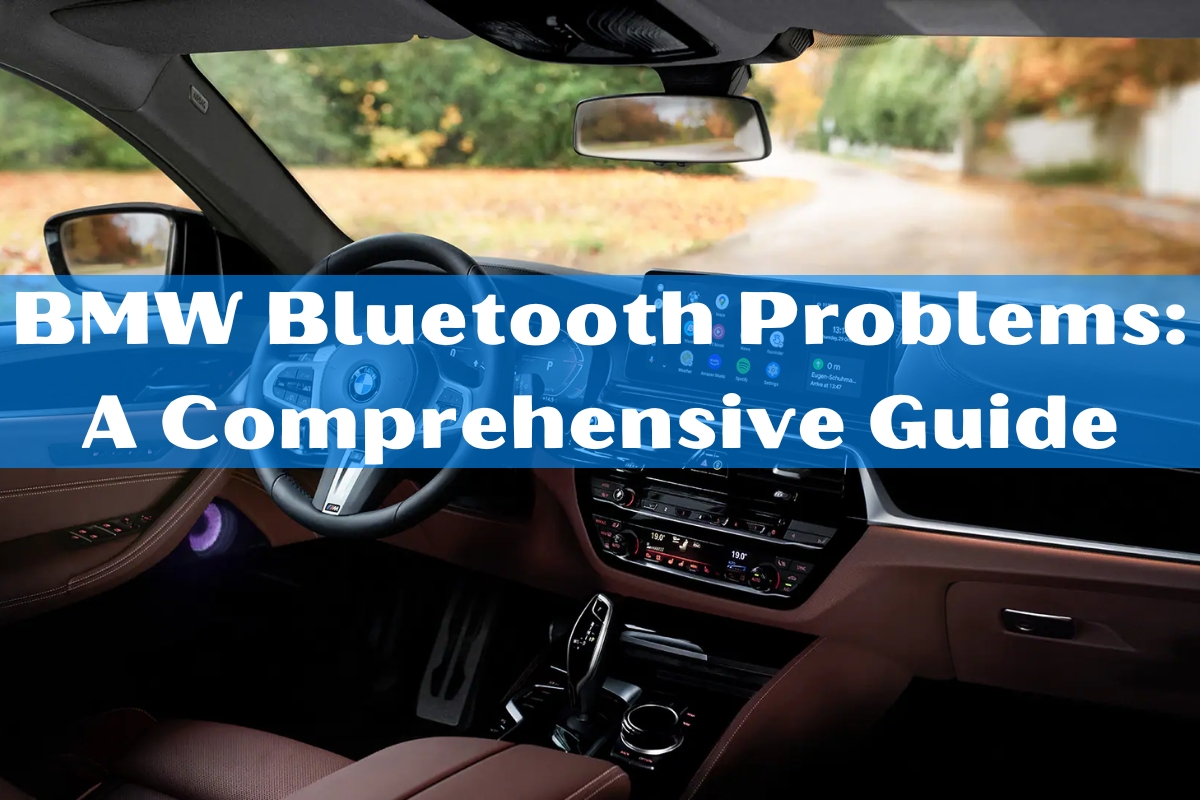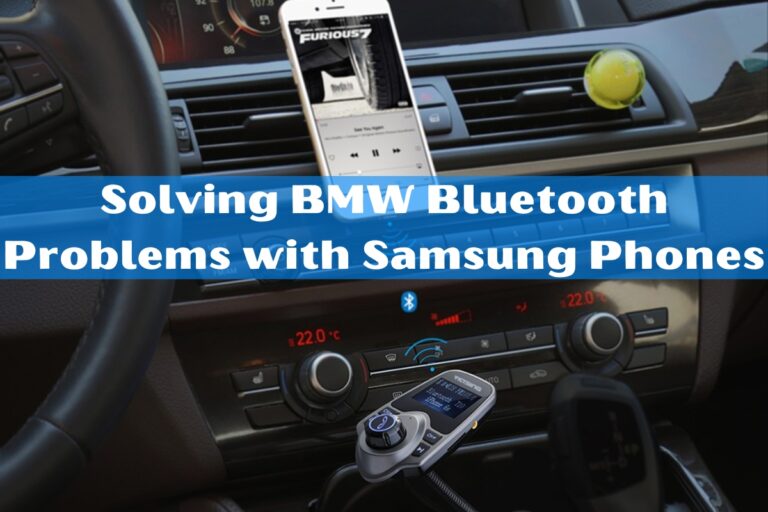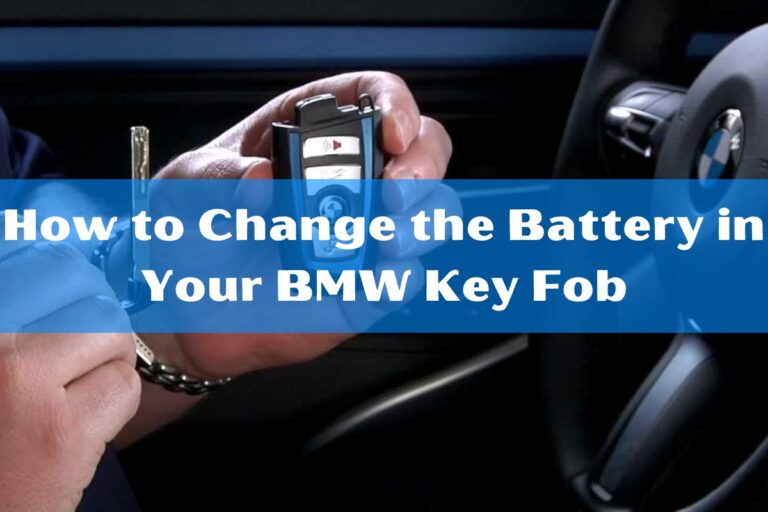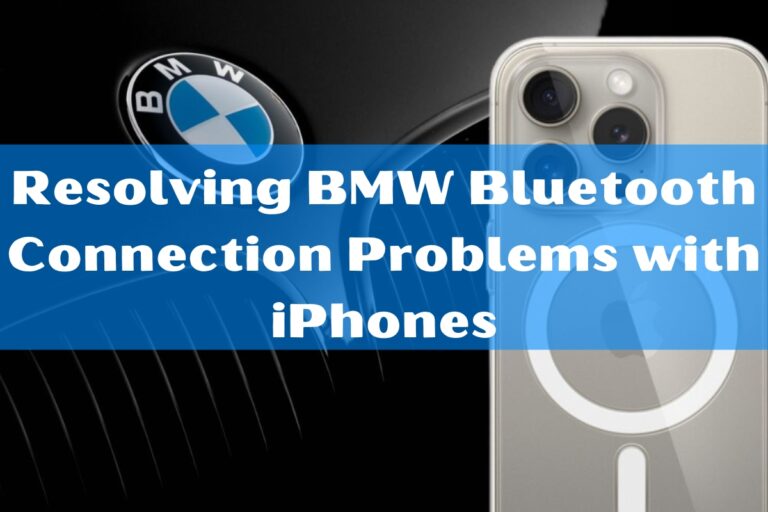BMW Bluetooth Problems: A Comprehensive Guide

Are you struggling with Bluetooth connectivity issues in your BMW? Don’t worry; you’re not alone. Many BMW owners have faced challenges with pairing devices, maintaining stable connections, and experiencing audio or voice quality problems. This comprehensive guide aims to address common BMW Bluetooth problems and provide practical solutions to help you get the most out of your vehicle’s connectivity features.
Bluetooth technology has become an integral part of modern vehicles, offering hands-free calling, music streaming, and seamless integration with mobile devices. However, when Bluetooth isn’t functioning correctly, it can be frustrating and disrupt your driving experience. In this article, we’ll dive deep into the most common BMW Bluetooth problems, their causes, and effective solutions to help you resolve them.
Understanding BMW Bluetooth Connectivity
Before we delve into the problems and solutions, let’s briefly understand how BMW Bluetooth works. Bluetooth is a wireless communication technology that allows your mobile device to connect to your BMW’s infotainment system. This connection enables features like hands-free calling, audio streaming, and in some cases, even vehicle control functions.
BMW’s Bluetooth system is designed to be user-friendly, but it’s not immune to issues. Various factors, such as device compatibility, software updates, and signal interference, can affect the reliability and performance of your Bluetooth connection.
Pairing Problems
One of the most common BMW Bluetooth problems is difficulty pairing your mobile device with the vehicle. Symptoms of pairing issues include:
- Inability to pair your phone or frequent failed pairing attempts
- Frequent disconnections after initially pairing
These problems can be caused by several factors, such as:
- Device Compatibility: Some mobile devices may not be compatible with your BMW’s Bluetooth system. Compatibility can vary based on the device’s hardware and software.
- Outdated Software: Outdated firmware or software on your BMW or mobile device can lead to compatibility issues and pairing problems.
- Memory Limitations: Your BMW’s Bluetooth system may have limited memory for storing paired devices, which can prevent new pairings.
To resolve pairing problems, try the following solutions:
- Check Compatibility: Ensure that your mobile device is compatible with your BMW’s Bluetooth system by consulting the manufacturer’s compatibility list or contacting a BMW dealer.
- Update Software: Update both your BMW’s software and your mobile device’s software to the latest versions. Software updates often include bug fixes and compatibility improvements.
- Clear Device Memory: If your BMW’s Bluetooth system is at its pairing limit, clear the memory by deleting previously paired devices to make room for new ones.
Connectivity Issues
Even after successfully pairing your device, you may encounter connectivity problems, such as frequent disconnections, dropouts, or inconsistent audio or call quality. These issues can be caused by:
- Signal Interference: Other electronic devices, Wi-Fi routers, or a crowded frequency band can interfere with the Bluetooth signal, causing connectivity problems.
- Low Battery: A low battery on your mobile device or the BMW can lead to unstable connections and dropouts.
- Software Bugs: Firmware or software bugs in your BMW’s Bluetooth system or your mobile device can cause connectivity issues.
To address connectivity problems, try the following solutions:
- Reduce Signal Interference: Move away from other electronic devices or Wi-Fi routers that may be causing interference. You can also try turning off your mobile device’s Wi-Fi connection.
- Ensure Sufficient Battery Levels: Keep both your mobile device and your BMW’s battery adequately charged to maintain a stable Bluetooth connection.
- Update Software: Check for and install any available software updates for your BMW and mobile device. Updates often include bug fixes that can resolve connectivity issues.
Audio and Voice Quality Problems
Another common issue is poor audio or voice quality when using Bluetooth in your BMW. Symptoms may include:
- No sound or poor sound quality during calls or audio playback
- Voice commands not being recognized or misinterpreted
These problems can be caused by various factors, such as:
- Incorrect Audio Source: If the incorrect audio source is selected in your BMW’s infotainment system, it can result in no sound or poor audio quality.
- Bluetooth Profile Mismatch: Incompatibility between your mobile device’s Bluetooth profile and your BMW’s system can affect audio and voice quality.
- Background Noise: Excessive background noise inside the vehicle can hinder voice recognition and degrade audio quality.
- Microphone Issues: A faulty or obstructed microphone in your BMW can affect voice command recognition and call quality.
To resolve audio and voice quality problems, try the following solutions:
- Select the Correct Audio Source: Ensure that you have selected the correct audio source (e.g., Bluetooth audio) in your BMW’s infotainment system.
- Check Bluetooth Profile Compatibility: Verify that your mobile device’s Bluetooth profile is compatible with your BMW’s system. Updating your device’s software may resolve profile mismatches.
- Minimize Background Noise: Reduce background noise inside the vehicle by closing windows, adjusting climate control settings, or avoiding loud conversations during calls or voice commands.
- Inspect the Microphone: Check if the microphone in your BMW is clean and unobstructed. If there are issues, consult a professional technician for microphone inspection and repair.
Call Quality Issues
Poor call quality, including echo, dropped calls, or distorted audio, can be another frustrating BMW Bluetooth problem. These issues can be caused by:
- Weak Bluetooth Signal Strength: A weak Bluetooth signal can result in call quality problems and dropped calls.
- Mobile Device Issues: Issues with your mobile device, such as interference or low signal strength, can affect call quality when using Bluetooth.
- Bluetooth System Bugs: Software or firmware bugs in your BMW’s Bluetooth system can also contribute to call quality problems.
To address call quality issues, try the following solutions:
- Maintain Signal Strength: Ensure that your mobile device is within a reasonable range of your BMW to maintain a strong Bluetooth signal.
- Address Mobile Device Issues: Resolve any issues with your mobile device, such as signal problems or interference, that may be affecting call quality.
- Update Software: Keep your BMW’s software and firmware up-to-date to resolve potential bugs affecting call quality.
Additional Troubleshooting Tips
If you’ve tried the solutions mentioned above and are still experiencing BMW Bluetooth problems, here are some additional troubleshooting tips:
- Reset BMW Bluetooth: In some cases, resetting your BMW’s Bluetooth system can resolve persistent issues. This typically involves deleting all paired devices and then re-pairing your mobile device.
- Update Software: Regularly check for and install any available software updates for your BMW and mobile device. These updates often include bug fixes and compatibility improvements.
- Check for Compatibility Issues: If you’ve recently upgraded your mobile device or made changes to your BMW’s software, ensure that there are no compatibility issues between the two systems.
Enhancing Your BMW Bluetooth Experience
While resolving Bluetooth problems is essential, you may also want to enhance your BMW’s Bluetooth experience. This is where BMW’s Enhanced Bluetooth feature comes into play.
What is Enhanced Bluetooth in BMW?
BMW’s Enhanced Bluetooth is an optional feature that provides additional functionality and improvements over the standard Bluetooth system. With Enhanced Bluetooth, you can enjoy benefits such as:
- Multiple Device Pairing: Enhanced Bluetooth allows you to pair and maintain connections with multiple devices simultaneously, such as a personal and work phone.
- Improved Audio Streaming: Enhanced Bluetooth supports advanced audio streaming features, including album art display and better control options.
How to Activate Enhanced Bluetooth
If your BMW model supports Enhanced Bluetooth, you may need to activate it. The process can vary depending on your vehicle, but it typically involves:
- Checking Compatibility: Ensure that your BMW model supports the Enhanced Bluetooth feature. Some models may require additional hardware or software upgrades.
- Activation Method: Depending on your vehicle, you may need to activate Enhanced Bluetooth through a remote coding session with a trained technician or by inserting a flash drive into your BMW’s USB interface.
Consult your BMW dealer or refer to the vehicle’s owner’s manual for specific instructions on activating Enhanced Bluetooth in your BMW.
Conclusion
Bluetooth connectivity in your BMW can significantly enhance your driving experience, but when problems arise, it can be frustrating. By understanding the common BMW Bluetooth problems, their causes, and the solutions outlined in this guide, you’ll be better equipped to troubleshoot and resolve any issues you encounter.
Remember, regular software updates, compatibility checks, and proper maintenance can go a long way in ensuring a seamless Bluetooth experience in your BMW. If you continue to experience persistent issues, don’t hesitate to consult a professional technician for further assistance.






